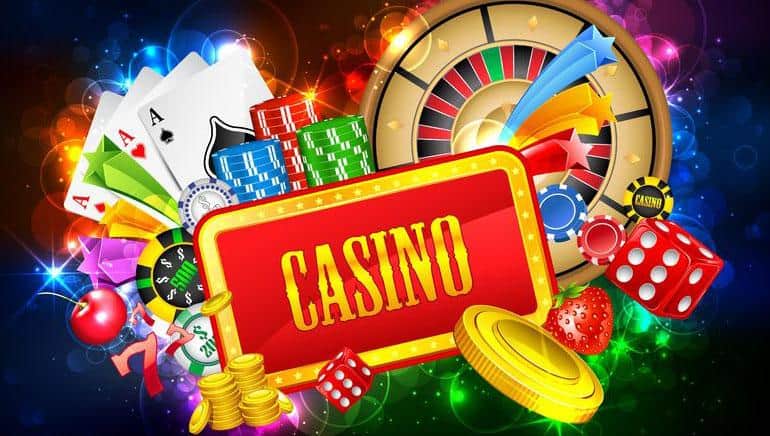
Casino games have captivated players for centuries, progressing from simple pastimes to sophisticated forms of entertainment that blend chance, skill, and entertainment. From the early beginnings of gambling in civilizations such as ancient Mesopotamia and Rome to the glitzy corridors of modern casinos, the journey of these games shows much about our nature and our connection with luck. As cultures blended and innovation has progressed, casino games have changed, reflecting societal changes and developments in gameplay.
The initial iterations of gambling likely featured basic games involving dice and wagering on the results of sports competitions. As time passed, these primitive activities grew into more structured games like table games, the game of roulette, and the myriad one-armed bandits that line casino floors today. Each period brought its own set of rules, visual styles, and social relevance. In the current era, casino games continue to evolve with the rise of online platforms, enabling players from all corners of the globe to engage in a common experience, further fusing the traditional with the digital age.
Ancient Roots of Casino Activities
Gaming games have roots that extend back to historical civilizations, where betting was deeply embedded in cultural traditions and cultural rituals. The initial known instances of gambling developed in ancient Mesopotamia around 3000 BC, involving basic dice activities made from bone bones. These initial activities laid the foundation for more advanced gambling games, showing humans’ innate desire to seek fortune and entertainment through luck.
As societies evolved, so did their betting interests. In historic Chinese culture, around 2300 BC, tiles were found that resembled early rudimentary versions of a lottery game. More structured instances of betting developed in the Roman Empire, where activities of chance were a popular recreation, often occurring in social events. The ancient Romans developed different wagering games, which entailed die and table games, highlighting the pervasive nature of betting across different social classes. VU88
With the passage of ages, these primitive games contributed to the development of contemporary gambling activities. In the medieval period, playing card activities became prevalent in Europe, paving the way for the organized gambling venues we know today. The change from casual betting to organized gaming in pubs and personal homes marked a major transformation in how people interacted with activities of chance, leading to the eventual creation of gaming houses as specialized places for gambling.
The Growth of Modern Casino Gaming
The late 20th century marked a crucial transition in the world of gambling games, driven by technological progress and changes in cultural attitudes towards gambling. The introduction of computers and the internet altered the way players engaged with their favorite casino games. Virtual casinos emerged, enabling players to enjoy traditional casino classics like poker and blackjack from the convenience of their own homes. This new digital landscape not only broadened availability to gambling options but also attracted a younger crowd who found the ease and diversity appealing.
As digital gaming gained momentum, so did developments in gaming technology. The advancement of sophisticated programs and graphics converted traditional gambling games into immersive experiences. Gamblers could now connect with authentic dealers through real-time broadcasts, importing the atmosphere of physical casinos directly into their homes. This blending of live gaming with online platforms created a new hybrid model that elevated the social aspect of gambling, making it possible for people to connect and compete with fellow gamers around the world.
Furthermore, the emergence of mobile gaming dramatically changed the casino landscape. With the ubiquitous use of smartphones and touch devices, gamblers can access their beloved casino games at any location, anytime. Mobile apps offer a extensive range of options customized for mobile screens, serving the dynamic daily life of modern users. This availability has produced growing participation in gambling, fostering the surge of the gaming industry. As a result, the future of the gaming industry continues to evolve, responding to technological advancements and changing consumer preferences.
The Impact of Technology on Casino Games
The evolution of technology has significantly transformed casino games, improving the overall experience for players for gamblers globally. With the introduction of the internet, online casinos emerged, allowing players to play their preferred games from the safety of their own homes. This shift not only made casino games more available but also expanded the variety of games available, as online platforms could offer many different versions of traditional games without the limitations of brick-and-mortar establishments.
Mobile technology further transformed the casino gaming landscape. As smartphones and tablets became widespread, players now have the ability to engage in casino games anytime and anywhere. This flexibility has led to the development of dedicated mobile applications and optimized websites that provide seamless gaming experiences. Additionally, innovations such as live dealer games have delivered the authentic atmosphere of a casino into players’ living rooms, connecting between physical and online gaming.
Moreover, advancements in AI and VR are leading to the next generation of casino games. AI enhances game design and player interaction, creating tailored experiences based on user behavior and preferences. Meanwhile, virtual reality offers immersive environments where players can engage in a virtual casino environment, making the gaming experience more exciting and realistic. As technology continues to evolve, the future of casino games looks promising, filled with limitless opportunities for advancements and entertainment.
